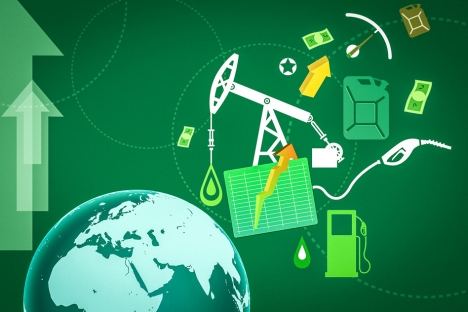
Images offer a snapshot of rising tides and the effects on people worldwide. Here you can browse the top shots from this year's Atkins CIWEM Environmental Photographer Photographer of the Year awards.

Researchers have found a way to culture cells in a lab and produce leather that's biologically identical to that made from animal skin.

For the first time in 4 million years, carbon dioxide concentrations cleared 400 parts per million (ppm) at the South Pole. It's the last climate-monitoring spot on Earth to pass the historic milestone.

Eastern Canada's black spruce forests are one of the largest untamed wilderness areas on Earth. And in refreshingly optimistic news, parts of this ecosystem are expected to flourish in a warmer world.

Global emissions of ethane, an air pollutant and greenhouse gas, are on the uptick again, according to a new study. The air samples for the study were collected from more than 40 sites around the world.

The study has shown for the first time that the greenhouse gas carbon dioxide can be permanently and rapidly locked away from the atmosphere, by injecting it into volcanic bedrock. The carbon dioxide reacts with the surrounding rock, forming environmentally benign minerals.

Six British warships stationed in the Persian Gulf are breaking down because the water is too hot. When the ships' turbines get overheated, they can't generate as much energy, resulting in electrical failures.

The 2015-16 El Nino has likely reached its end. Tropical Pacific Ocean temperatures, trade winds, cloud and pressure patterns have all dropped back to near normal, although clearly the event's impacts around the globe are still being felt.

The latest report from the United Nations found that the damage we are doing is occurring at a much more rapid pace than previously thought, to such an extent that we are degrading the environment quicker than it can recover.

Led by World Bank and IMF, coalition seeks to price emissions to tackle climate change.

Oil companies have known about the effects of carbon dioxide emissions from cars far longer than many originally thought, according to recently released documents.

The Totten Glacier in East Antarctica has an unstable area that could collapse and contribute to more than two metres of sea level rise beyond what is generally predicted if climate change remains unchecked, researchers say.

When it comes to hurricanes, environmental engineer Ana Barros says there are two sides to the story.

In the first ever report looking into the world's plants and their status, scientists have cataloged almost 400,000 known species.

Comprehensive fundraising initiative aims to raise $5 billion to advance Institute's work on some of the world's biggest challenges.